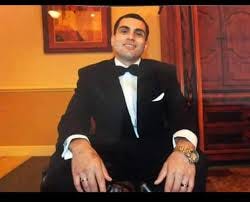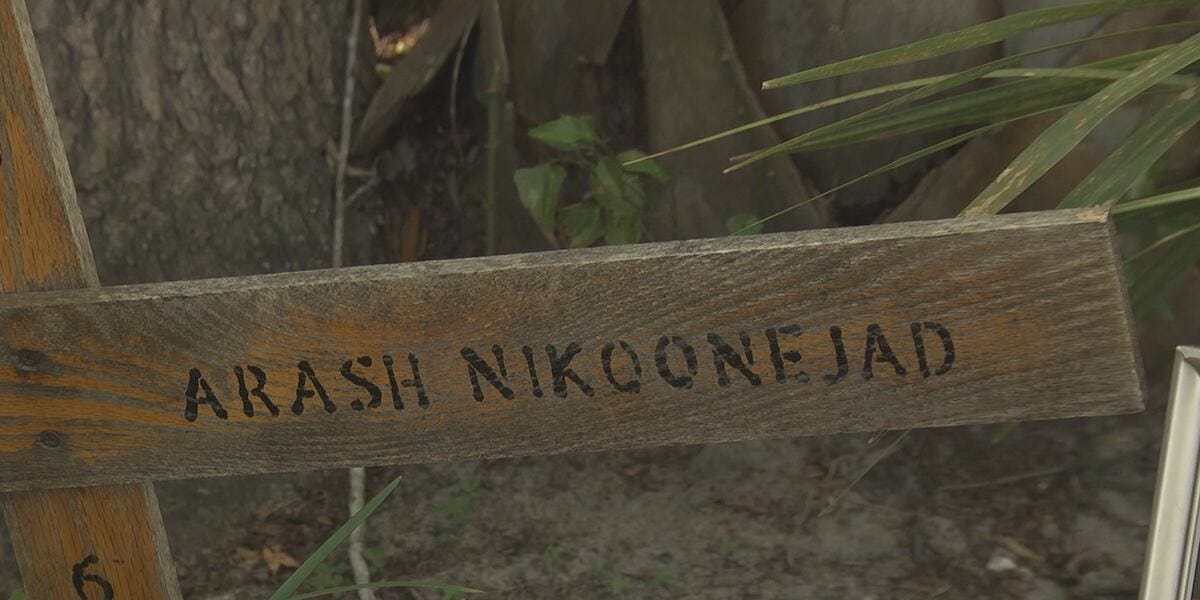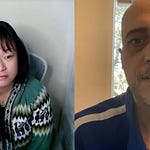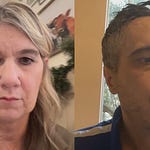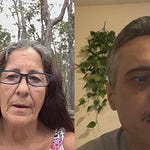A Son Remembered: Arash Nikoonejad of Gainesville Murdered in 2019
In early November 2019, the life of 27-year-old Arash Nikoonejad came to a tragic and violent end in Gainesville, Florida. His death shook the local community and forever changed his family’s life. Now, as TheColdCases.com prepares to interview his mother, this article explores who Arash was, what happened the night he was killed, and how his mother continues to fight for justice and awareness in his name.
Who Was Arash Nikoonejad?
Arash lived in Gainesville at the Bella Vista Village Apartments on Northwest 39th Avenue. To those who knew him, he was a kind and hard-working young man with hopes and dreams that were abruptly taken away. His mother, Zahra Abyazenjad, describes him as a loving son who cared deeply about others.
On November 4, 2019, Arash left his apartment and was never seen alive again. When his family couldn’t reach him, they became increasingly worried. Four days later, police found his body inside his locked apartment.
His death was ruled a homicide—a single gunshot wound to the back that passed through his chest. But behind that grim finding lay a deeper story of confrontation, violence, and unanswered questions.
The Night of the Murder
According to reports from the Alachua Chronicle, CBS4, and WCJB, the events began with a confrontation outside Arash’s apartment complex.
On the evening of November 4, Arash reportedly got into an altercation with his neighbor Virgil Burns and another man, Derek Hall. Witnesses said Arash struck Hall’s car with a broken electric blower handle during a heated dispute.
Hall allegedly responded by revving his engine and driving toward Arash, hitting him and knocking him back several feet. Despite being injured, Arash managed to walk back to his apartment.
Later that night, a neighbor heard two gunshots and saw three men standing over someone lying on the ground. By the time police arrived, the men were gone.
Discovery and Autopsy
When family members couldn’t reach Arash, they asked police to perform a well-being check. On November 8, officers entered his apartment and found his body inside.
An autopsy determined that Arash died from a small-caliber gunshot wound to the upper right part of his back, which exited near the front of his chest. The coroner also noted bruises, fractured ribs, and internal injuries consistent with being struck by a vehicle.
It became clear that Arash had survived the initial car attack but was later shot and left to die alone inside his apartment.
The Investigation and Arrest
The investigation stretched on for months as police pieced together witness statements, physical evidence, and phone data.
In February 2020, Gainesville Police arrested Derek Hall, charging him with first-degree murder and possession of a firearm by a convicted felon.
Key evidence included:
Blood evidence: Arash’s blood was found on Hall’s car door panels and handles.
Phone location data: Cell records placed Hall and Burns near Arash’s apartment at the time of the shooting.
Witness testimony: Multiple witnesses reported seeing Hall’s vehicle near the scene and hearing the gunshots.
While Hall’s arrest brought some relief, Arash’s family still felt that justice remained incomplete. His mother, Zahra, believes that others involved in the events that night have not been held accountable.
Sign the Petition
Sign the petition to fully investigate Arash Nikoonejad’s 2019 Murder in Gainesville, Florida that was started by his mother.
A Mother’s Grief Turns to Activism
In June 2023, Zahra Abyazenjad stood before cameras, candles, and community members at a Gainesville event called “Shots Fired”, speaking not just as a mother in mourning, but as a mother demanding change.
“I am a mother; no family should go through what I go through,” she said. “My son is going to be with me all the time.”
Since Arash’s death, Zahra has become a local advocate against gun violence, organizing marches, speaking at public events, and using her voice to raise awareness about the toll of senseless violence. She has also called for improved investigation processes and greater accountability in cases like her son’s.
Why Arash’s Case Still Matters
Arash’s murder isn’t just a local tragedy—it’s part of a much larger conversation about gun violence, community safety, and systemic failure.
Gun Violence at Home: Arash wasn’t killed in a high-crime neighborhood or during a random act. He was killed steps from his own door, in a place where he should have been safe.
A Delayed Discovery: It took days for authorities to find Arash’s body. This delay highlights how easily victims can go unnoticed and how crucial wellness checks can be.
Multiple Layers of Violence: Before the fatal shot, Arash was reportedly hit by a car and beaten. His death was the result of escalating violence—a chilling example of how minor disputes can spiral into deadly outcomes.
Accountability: Although one man was charged, Zahra continues to push for deeper investigation into everyone involved that night. She refuses to let her son’s case fade into silence.
Community Healing: Zahra’s advocacy has brought together other families affected by gun violence. Her message is simple: no one should have to feel this pain.
Justice, Delays, and Ongoing Questions
While an arrest was made, trials and sentencing can take years. Each delay is another wound for grieving families like Zahra’s.
The community has expressed frustration with how slowly justice moves, especially in homicide cases. Questions remain about whether others could still face charges, what evidence may yet surface, and whether the system did enough in the early days of the investigation.
For Zahra, justice means more than one arrest. It means transparency, accountability, and ensuring no mother has to bury her child because of gun violence.
A Broader Look at Gainesville’s Gun Violence Problem
Gainesville, like many American cities, has seen an increase in gun-related homicides and shootings over the past several years. Local law enforcement and activists alike are grappling with how to respond.
Community programs, mental health outreach, and violence-intervention initiatives have started to take shape—but Zahra argues that awareness isn’t enough without action.
She hopes city leaders and residents alike will treat gun violence as a public health crisis, one that requires education, prevention, and compassion, not just reaction after tragedy.
Remembering Arash
Behind every headline, there is a story—a heartbeat, a voice, a life that mattered. Arash was not just a statistic or a case file. He was a son, a friend, and a human being whose life was cut short.
His mother keeps his memory alive through every protest, every candlelight vigil, and every word she speaks.
“My son is going to be with me all the time,” she says—a statement that captures both her sorrow and her strength.
Moving Forward
The murder of Arash Nikoonejad stands as a painful reminder of how quickly violence can steal a future, a family, a sense of safety. It also shows the resilience of a mother who refused to be silent.
While the courts continue to move slowly and evidence continues to unfold, Zahra Abyazenjad has made one thing clear: she will never stop fighting for her son.
Her advocacy is not just about justice for Arash—it’s about preventing the next tragedy, about making sure another mother never has to light another candle for her child.
Carrying the Torch 🔥
Arash’s story is one of heartbreak, injustice, and determination. His mother’s courage and activism remind us that every life lost to violence leaves behind voices that will not be silenced.
Through TheColdCases.com and her ongoing efforts, Zahra Abyazenjad ensures that her son’s name will not fade into the archives. Arash’s story will continue to inspire awareness, advocacy, and change.
Justice may take time, but his memory—and his mother’s love—will endure forever. 💔



